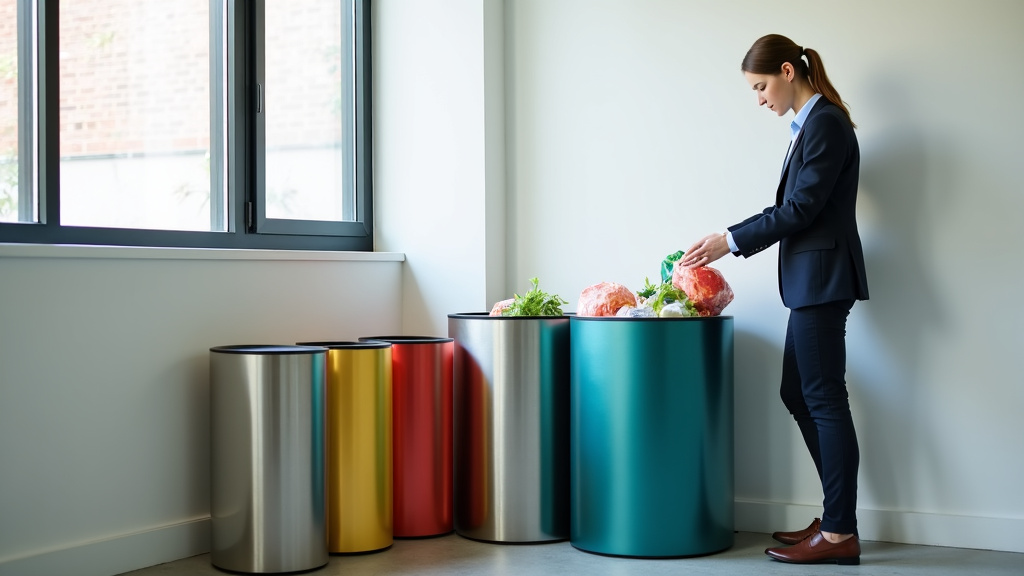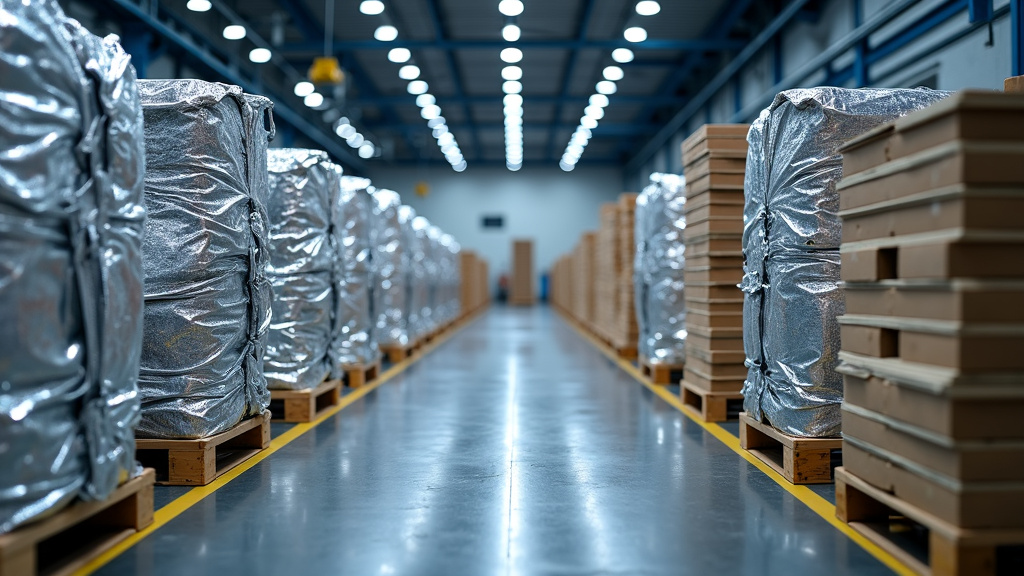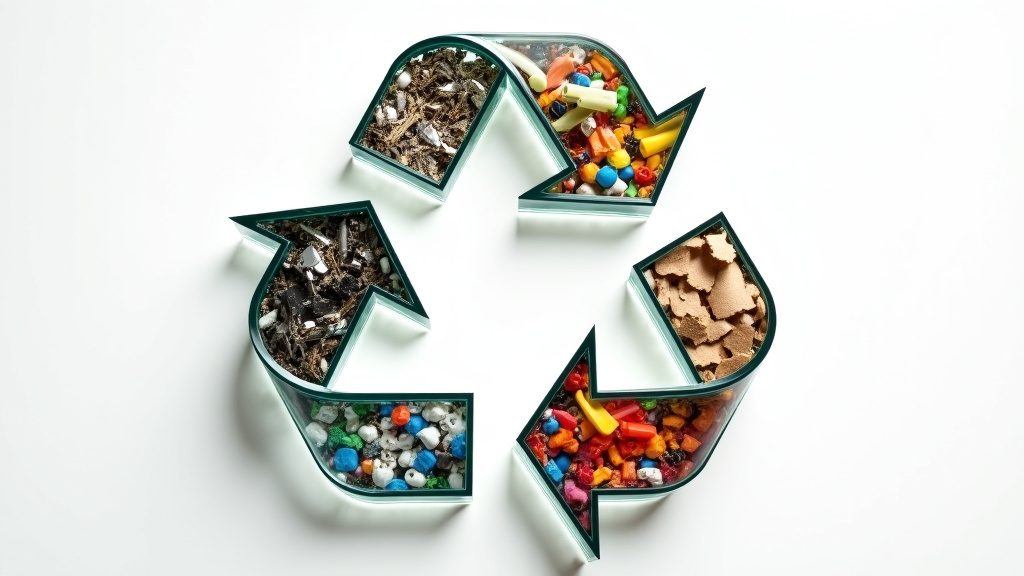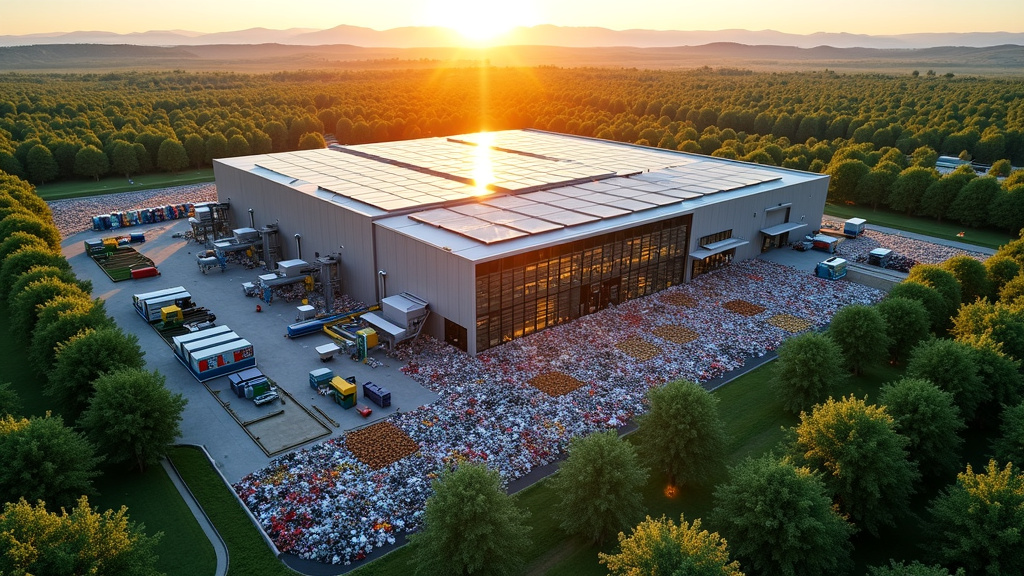5901 Botham Jean Blvd, Dallas, TX 75215
How Businesses Can Promote Recycling
February 12, 2025Imagine a workplace where every coffee cup, scrap of paper, and plastic bottle is repurposed instead of piling up in a landfill. This isn’t just an environmental ideal—it’s a smart business move reshaping industries worldwide. In today’s eco-conscious market, recycling isn’t just about sustainability; it’s about efficiency, cost savings, and staying ahead of the competition.
Companies with strong recycling programs can cut waste disposal costs by up to 30%, boosting their bottom line while enhancing brand reputation and employee engagement. Businesses that prioritize recycling often see increased customer loyalty and improved workplace morale—it’s not just waste management, but a statement of values and corporate responsibility.
At Okon Recycling, we specialize in turning discarded materials into valuable resources, helping businesses embrace sustainability without disrupting operations. But how can your company leverage recycling for financial and environmental gain?
In this article, we’ll explore practical strategies for implementing corporate recycling programs, from optimizing waste management systems to engaging employees and using sustainability as a marketing asset.
Implementing Structured Recycling Programs

Implementing structured recycling programs is not just beneficial for the planet—it’s a smart business strategy. Here’s how companies can create effective recycling initiatives that engage employees and make a real impact.
First: custom recycling bins are essential to any successful program. Gone are the days of confusing, one-size-fits-all receptacles. Modern businesses are choosing clearly labeled, strategically placed bins that simplify waste sorting. Imagine sleek containers with eye-catching graphics, each designated for specific materials—paper, plastics, electronics, etc.
But bins alone aren’t enough. The key? Employee education. Educating your team on sustainable recycling practices is crucial. Consider hosting ‘Waste Warrior Workshops’ where staff can learn proper recycling techniques. These sessions should be interactive and engaging, perhaps even gamified, to make learning enjoyable and memorable.
Incentivizing Eco-Friendly Behavior
Motivation is important. While some are naturally inclined to save the planet, a little incentive never hurts. How about a ‘Green Team Challenge’ where departments compete to reduce waste? The winning team could earn sustainable prizes or an extra day off. Friendly competition can transform recycling from a chore into a team-building activity.
Why stop at internal efforts? Partnering with local organizations can significantly amplify your impact. Collaborate with a nearby school on a recycling drive, or join forces with environmental non-profits for community clean-up days. These partnerships not only enhance your company’s green credentials but also foster employee pride.
Speaking of pride, don’t underestimate the power of success stories. Encourage employees to share their recycling achievements, whether it’s a creative upcycling project or a significant reduction in personal waste. These narratives inspire others and create a ripple effect of positive change throughout the organization.
Tech-Savvy Sustainability
In our digital era, leverage technology to enhance your recycling efforts. Consider a mobile app that gamifies the recycling process, allowing employees to track their contributions and earn points. You could also use QR codes on recycling bins to provide instant information on proper disposal methods.
A structured recycling program is an evolving entity. Regular audits and feedback sessions are essential to identify areas for improvement. Perhaps your initial bin placement wasn’t optimal, or certain materials are consistently sorted incorrectly. By staying flexible and responsive, you can optimize your program for maximum efficiency.
Lastly, celebrate your collective achievements. Did you hit a milestone in waste reduction? Host a ‘Zero Waste Party’ to acknowledge everyone’s efforts. These moments of recognition can reinvigorate enthusiasm and commitment to the cause.
Implementing a structured recycling program is more than ticking a corporate social responsibility box. It’s about fostering a culture of sustainability that extends beyond office walls. With the right approach, your recycling initiative can become a source of pride, innovation, and positive change within your organization and the wider community.
Ready to take action? Remember, every small step counts. Your journey towards a greener, cleaner future begins with that first recycled can or properly sorted paper. Let’s make waste reduction not just a goal, but a way of life in the workplace.
Economic Benefits of Recycling for Businesses

In today’s competitive business environment, savvy companies are finding a surprising source of cost savings and revenue: their trash cans. Recycling is no longer just an environmental feel-good story—it’s becoming a crucial strategy for boosting the bottom line. Let’s explore how businesses are turning their waste into wealth.
Slashing Costs Through Smart Waste Management
For many businesses, the most immediate benefit of recycling comes from reduced waste disposal fees. Landfill costs are expensive and continue to rise. By diverting recyclable materials, companies can significantly cut their trash hauling expenses.
Take Lockheed Martin’s facility in Moorestown, New Jersey, for example. In 2011, their recycling efforts led to a substantial $145,562 in avoided disposal costs. That’s a significant boost to the company’s profitability.
But the savings don’t stop at the dumpster. Recycling can also reduce procurement costs for raw materials. When businesses incorporate recycled materials into their production processes, they often find these resources are cheaper than virgin alternatives.
Turning Trash into Treasure: New Revenue Streams
Recycling isn’t just about saving money—it’s about making it too. Many recyclable materials have real market value, and savvy businesses are cashing in.
Consider Anheuser-Busch’s Newark Brewery. In 2014, their recycling program didn’t just save on disposal costs—it generated nearly $1.25 million in revenue from selling recyclable byproducts. From spent grain to aluminum cans, what was once considered waste became a lucrative side business.
Even for smaller operations, the numbers can be impressive. New Jersey Resources, for instance, brought in over $96,000 in 2014 just from recycling metals. That’s money that would have otherwise been thrown away.
| Company | Revenue (Year) |
| Waste Management Inc. | $1.6 billion (2023) |
| Waste Pro USA | $1.05 billion (2023) |
| AMG Resources Corporation | $1.64 billion (2021) |
| Covanta Holding Corporation | $2.20 billion (2022) |
| Plastipak Packaging | $3.90 billion (2023) |
The Ripple Effect: Indirect Economic Benefits
The financial advantages of recycling extend beyond direct cost savings and revenue. Companies with robust recycling programs often find themselves with a competitive edge in today’s environmentally conscious market.
Consumers are increasingly drawn to sustainable brands. A commitment to recycling can boost a company’s reputation, potentially leading to increased customer loyalty and sales. It’s not just good for the planet—it’s good for business relationships too.
Moreover, recycling initiatives can spark innovation. As businesses look for ways to reuse materials or create closed-loop systems, they often develop new products or more efficient processes. This can open up entirely new markets or revenue streams.
Overcoming Challenges: Making Recycling Work
Implementing an effective recycling program isn’t without its challenges. Initial setup costs, employee training, and logistical adjustments can seem daunting. However, companies like WithumSmith+Brown show that the long-term benefits far outweigh these upfront investments.
This accounting firm embraced a ‘paperless’ office initiative, not only reducing waste but saving over $22,000 in storage costs and $45,000 in printing expenses. It’s a powerful reminder that sometimes, the most effective recycling strategy is to reduce waste in the first place.
The Bottom Line: Recycling Pays Off
From manufacturing giants to small accounting firms, businesses across industries are proving that recycling is more than just an environmental imperative—it’s a smart financial move. By reducing disposal costs, generating new revenue streams, and improving their market position, companies are finding that what’s good for the planet can be great for profits too.
As regulations tighten and consumer expectations evolve, the economic case for business recycling will only grow stronger. The question isn’t whether your company can afford to recycle—it’s whether you can afford not to. So take a closer look at your waste stream. You might just find your next big cost-saving opportunity hiding in plain sight.
Promoting a Circular Economy Through Recycling

The concept of a circular economy has emerged as a transformative approach to sustainability. By focusing on recycling, reusing, and reducing waste, companies can create a closed-loop system that minimizes environmental impact and maximizes resource efficiency.
This shift towards circularity is transforming traditional business models and appealing to an increasingly eco-conscious consumer base.
At its core, the circular economy challenges the traditional ‘take-make-dispose’ linear model. Instead, it emphasizes keeping resources in use for as long as possible, extracting maximum value from them while in use, and then recovering and regenerating products and materials at the end of their service life. This approach is not just environmentally responsible; it’s also economically savvy.
One of the primary drivers of the circular economy is recycling. The circular economy model significantly reduces waste by promoting the reuse, recycling, and remanufacturing of products and materials. This process not only conserves natural resources but also reduces the energy required for production, thereby lowering carbon emissions and mitigating climate change.
Resource Efficiency: A Key Advantage
Resource efficiency lies at the heart of the circular economy. By designing products for longevity and recyclability, businesses can maximize the use of resources and minimize waste. This approach not only reduces costs associated with raw material procurement but also creates new revenue streams through innovative business models such as product-as-a-service.
For instance, companies like Michelin have adopted a tire-as-a-service model for commercial truck fleets. Instead of selling tires outright, they lease them based on distance driven, taking responsibility for maintenance, repair, and end-of-life recycling. This model incentivizes the production of durable, long-lasting products and ensures efficient resource use throughout the product lifecycle.
Moreover, resource efficiency in a circular economy extends beyond individual products. It encompasses entire supply chains, encouraging collaboration between businesses to optimize resource use and minimize waste. This systemic approach can lead to significant cost savings and improved operational efficiency across industries.
Sustainable Business Models: Appealing to Eco-Conscious Consumers
As consumer awareness of environmental issues grows, so does the demand for sustainable products and services. Businesses that embrace circular economy principles are well-positioned to meet this demand and gain a competitive edge in the market. By offering products designed for longevity, repairability, and recyclability, companies can attract and retain environmentally conscious customers.
Take Patagonia, for example. The outdoor clothing company has built its brand around sustainability, offering repair services for its products and encouraging customers to buy used items through its Worn Wear program. This approach not only reduces waste but also strengthens customer loyalty and enhances brand reputation.
Furthermore, circular business models often lead to increased customer engagement. Product take-back programs, repair services, and leasing options create multiple touchpoints with customers throughout a product’s lifecycle, fostering stronger relationships and providing valuable insights for product development and improvement.
Future Trends and Opportunities in the Circular Economy
Looking to the future, several trends are shaping the evolution of the circular economy. The World Economic Forum Centre for Nature and Climate is actively promoting the transition to a circular economy through various initiatives. These efforts are driving innovation and creating new opportunities for businesses across sectors.
One emerging trend is the integration of digital technologies in circular economy strategies. The Internet of Things (IoT), artificial intelligence, and blockchain are being leveraged to track materials, optimize resource use, and facilitate the sharing and reuse of products. These technologies are enabling new business models and improving the efficiency of circular processes.
Another significant trend is the rise of circular cities. Urban areas are increasingly adopting circular principles in waste management, energy systems, and urban planning. This shift presents opportunities for businesses to contribute to and benefit from circular urban ecosystems, from developing innovative waste management solutions to creating local, closed-loop supply chains.
Conclusion: The Path to Sustainable Growth Through Recycling

As businesses navigate the intersection of economic progress and environmental responsibility, they have a unique opportunity to lead the charge toward a more sustainable future. Recycling isn’t just about waste reduction—it’s a strategic advantage that drives innovation, cuts costs, and enhances brand value in an increasingly eco-conscious market.
Forward-thinking companies are discovering that robust recycling initiatives do more than benefit the planet; they unlock new revenue streams and strengthen customer loyalty. By treating waste as a resource, businesses can position themselves as industry leaders while making a tangible impact on sustainability.
For companies ready to take the next step, Okon Recycling offers customized solutions that turn recycling challenges into business opportunities. With over a century of expertise and a cutting-edge facility in Dallas, Okon helps businesses maximize efficiency and sustainability.
Now is the time to act. Let’s work together to build a greener future while strengthening your bottom line. Call Okon Recycling today at 214-736-9509 to explore how your business can turn waste into opportunity.
